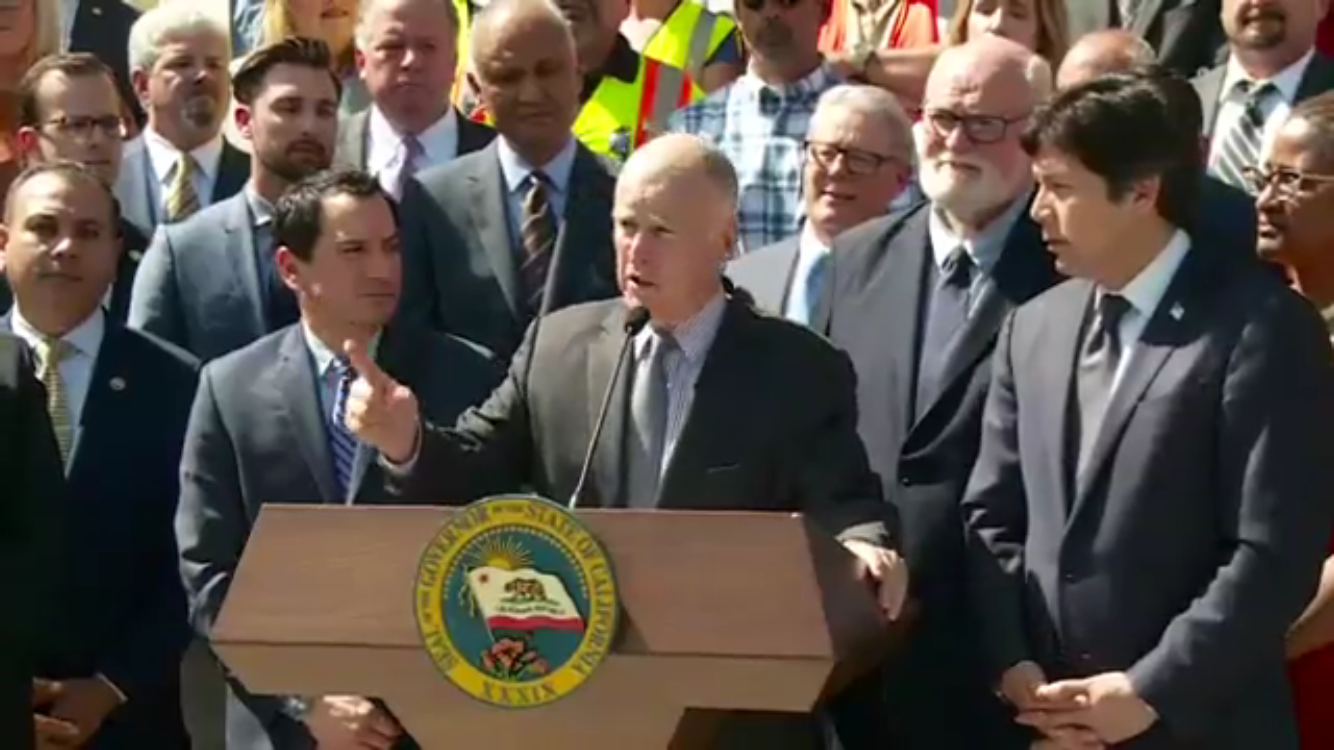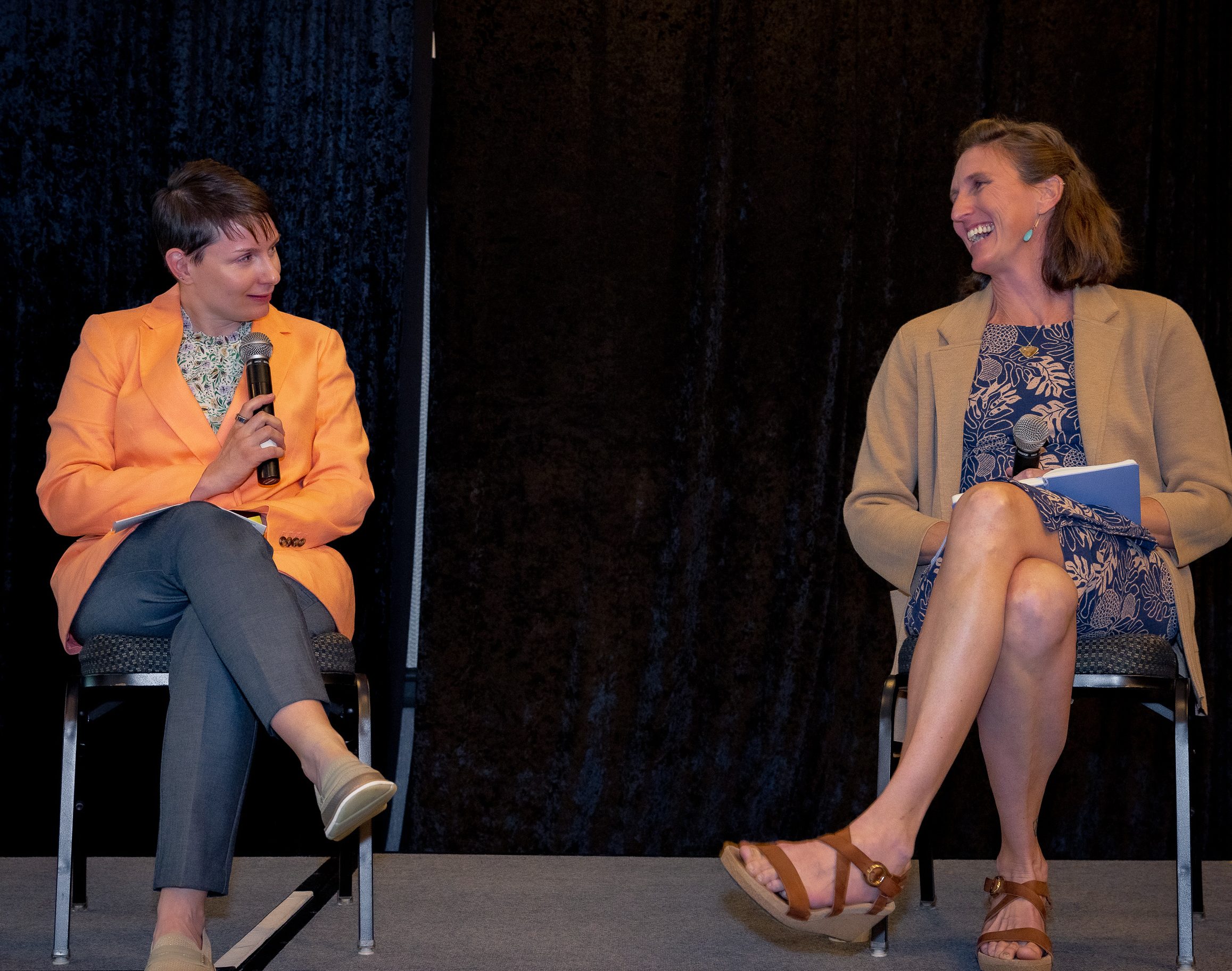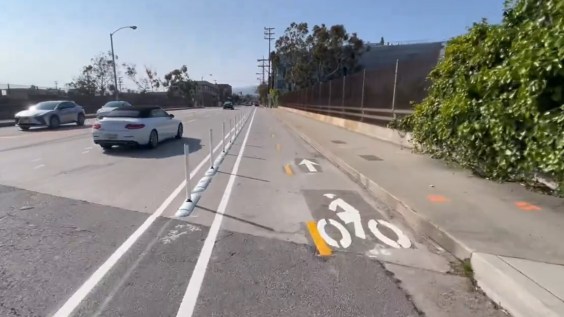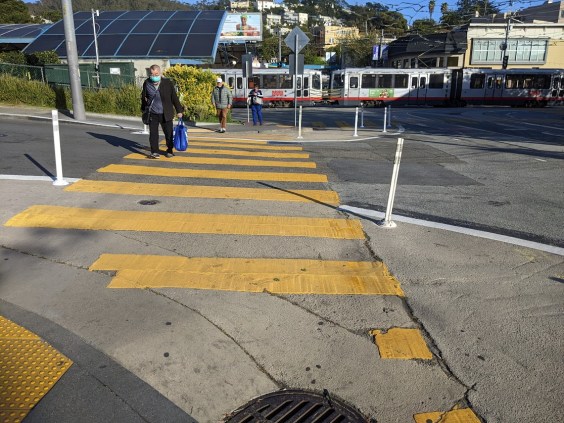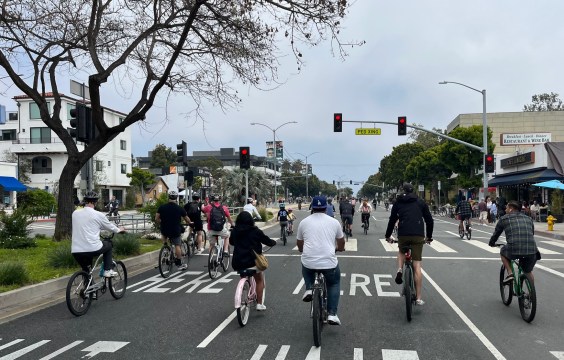Yesterday, Governor Jerry Brown, Senate President Pro Tem Kevin de León, and Assembly Speaker Anthony Rendon stood in front of a large crowd of excited lawmakers, backed by people wearing reflective vests and hard hats, to announce that they had come to a new agreement on a transportation funding package.
They offered few details on the reworked bill, and its new language has yet to be officially released. But after several weeks of intense negotiations, S.B. 1 was looking better and better to people who were pushing for a more sustainable and equitable approach to transportation. For example, the bill now contains more money for transit. The Active Transportation Program is set to receive a sizable chunk of money—at $1 billion, still only about two percent of the $52 billion total, but at least it was firmly in the bill. S.B. 1 maintains a focuses on badly-needed repair and maintenance first, with only some funding going for congestion management, which frequently translates as highway expansion.
It was starting to look like a pretty good deal to sustainable transportation and equity advocates.
Then, at the last minute, a paragraph was inserted that turned it on its head. The amendment, clearly added at the behest of the trucking industry, would exempt trucks from Air Resources Board regulations and allow them to continue polluting without oversight.
“Its apologists are saying that all [the amendment] means is that no trucker who bought or retrofit a truck to comply with ARB rules would have to buy another one within a certain period of time,” said Bill Magavern, policy director for the Coalition for Clean Air.
But the current unofficial draft language is not exactly crystal clear, and there's more than room for interpretation.
“What it actually does,” said Magavern, “is undermine the ARB, and a decision just made by the ARB last Thursday” to strengthen its rules on indirect emission sources. “It exempts trucks from that effort.”
“Indirect sources” of emissions include ports, commercial hubs, shipping centers, shopping centers, and similar destinations that attract and thus indirectly encourage “mobile source” emissions from traffic. Many of those emissions come from trucks.
Environmental justice advocates have been pointing out that many of the people living closest to such facilities are low-income people, those most vulnerable to health and economic problems stemming from pollution.
“This dirty truck provision came out of nowhere,” said Amanda Eaken of the Natural Resources Defense Council, who has been actively engaged in negotiations on the funding package. “It's a really bad last-minute rider that has not been a part of any of the negotiations on this bill for the last two years, and has had no discussion on it,” she said. “This is a cause for major concern.”
“The idea that we need to be polluting our most vulnerable communities in order to fix our roads—I don't buy that political calculus,” said Eaken. “It's too high a price.”
“And,” she added, “it's really out of place. Exempting trucks from clean air rules has no place in a package that's about fixing roads and improving transit.”
The political calculus is complicated. Because it raises gas and diesel taxes, the bill will need at least 2/3 of the vote to pass. Republicans, who won't raise taxes, have already made it clear that they won't support it, even though they say their districts are in dire need of funding to fix roads. If Democrats voted strictly along party lines, the bill could pass easily, but that's never how it works. In fact, the push for the truck amendment likely came from several Assembly Democrats.
It's a dirty game. Several Senators have pushed, successfully, for more money for transit, and perhaps others see that win as an opportunity for a horse trade.
Certainly the head of the Assembly Transportation Committee, Assemblymember Jim Frazier (D-Oakley), does.
He left no question as to his perspective when he summarily killed a bill last year that sought to get representation for disadvantaged communities onto the California Transportation Commission, a body that decides which transportation projects get funded in the state. He called disadvantaged communities a “special interest” and said that, if they were to have representation on the commission, then so too should the freight industry. He declared that the bill in question “would elevate disadvantaged communities and their interests above all others--and we can’t have that.”
A strong transportation funding bill has the potential to begin shifting state funding towards sustainable, equitable, and reasonable transportation forms. It would be too bad if these benefits were undermined by a fight over who is more important, the people who breathe bad air from trucks or the industry itself. The trucking industry can figure out how to abide by air quality rules, and their disagreements with the Air Resources Board about how to do so don't belong in a transportation funding bill.
But with pressure from all sides to “find a solution” to “fix our roads,” and with Governor Brown urging the legislature to pass the bill before its spring recess, which begins at the end of next week, and with political horsetrading going on at full tilt, the opportunity to influence the conversation is quickly passing by.
A general outline of what the bill contains can be found here.
TransForm has issued a call for action here.
